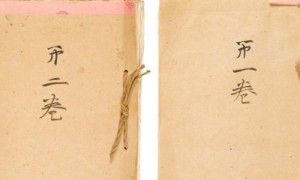内容简介
英语中的条件句用来对过去、现在或将来发生的事情或情况作出假设。在对过去的情景作出假设、假想时,应该使用 “第三类条件句(the third conditional)”。这类句子的典型结构是:“If + 主语 + 过去完成时,主语 + would have + 过去分词”。看视频,快速学习 “第三类条件句” 的主要用法。
文字稿
Welcome to BBC Learning English. I'm Sam and today we're talking about the third conditional.
The third conditional is a little strange because we're talking about something that didn't happen in the past. Why would we do that? Well, because sometimes we want to imagine a different outcome.
A friend of mine came to visit me yesterday. It was a surprise, so when I opened my front door, I said: "If I'd known you were coming, I would have baked a cake!"
Did I know she was coming? No. Did I bake a cake? No.

So I'm imagining a different result.
Because we're talking about an imaginary past, we use:
If + the subject + the past perfect, the subject + would have + past participle
And you can also swap those round: What would you have done if you'd known your friend was coming?
用法总结
1. 句式
典型的第三类条件句的句式如下:
If + 主语 + 过去完成时,主语 + would have + 过去分词
这个句式的前半部分(If + 主语 + 过去完成时)被称作 “条件从句” 或 “if 从句”;后半部分(主语 + would have + 过去分词)被称作 “主句”。条件从句(if 从句)和主句之间的顺序可以互换,意思不变。主句在前时,主句和从句之间不使用逗号。
If I'd known you were coming, I would have baked a cake.
I would have baked a cake if I'd known you were coming.
2. 用法
第三类条件句被用来对过去不曾发生的事情作设想。条件从句(if 从句)对过去作设想,主句讲述设想的结果。
If I'd been born in Spain, I would have learned Spanish, not English!
What would you have done if you'd failed your test?







